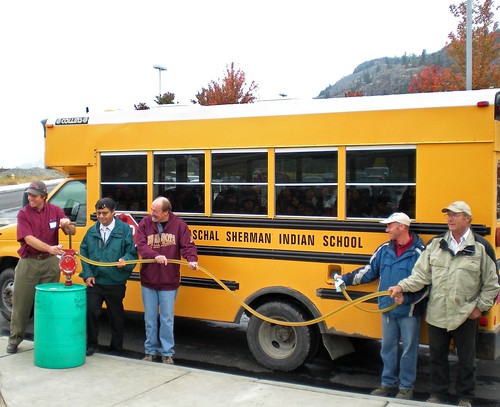
This post is part of the Science Tuesday feature series on the USDA blog. Check back each week as we showcase stories and news from the USDA's rich science and research portfolio.
In the Pacific Northwest, scientists with USDA’s Agricultural Research Service are exploring the potential of a crop called winter canola. Canola, an oilseed crop, sprouts bright yellow flowers in May, but it’s definitely more than just a pretty plant.
The ARS scientists collaborated with USDA’s Natural Resources Conservation Service (NRCS), whose employees already had been working with members of the Pacific Northwest Indian Coalition on growing canola as a biodiesel crop. Some members of the Confederated Tribes of the Colville Reservation allowed NRCS to set up spring canola plots on their land in Omak, Wash.
When the spring canola yielded 1,000 pounds per acre, the scientists turned their attention to winter canola. While planting dates are important with this crop—it needs to be planted early enough to bulk up before winter—the yields were an impressive 1,300 pounds per acre.
Now wheat farmers in Washington’s Okanogan County have begun planting winter canola. The canola not only helps suppress weeds in crop fields, but can also help the soil store water.
Many of the region’s farmers lease land from the Confederated Tribes of the Colville Reservation, and the Colville tribe plans to purchase the canola seed from the farmers and process it in their own biodiesel production facility.
They’ll sell the crushed canola meal back to the farmers as a protein supplement in cattle feed, and use the biodiesel to run their 100 logging trucks and other vehicles, including 15 school buses. When the buses run on an 80/20 diesel/canola blend, that’s enough to eliminate black soot from the exhaust.


